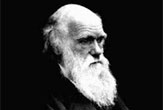Backer of 'Intelligent Design' Testifies

HARRISBURG, Pa. (AP) -- Introducing "intelligent design'' to high school students could help the idea gain wider acceptance among mainstream scientists, a sociology professor testified Monday in a landmark federal trial over whether the concept can be mentioned in public school biology classes.
Lawyers for the Dover Area School Board called Steve Fuller, a sociology professor at the University of Warwick, England, as an expert witness Monday morning. He tried to bolster the school board's contention that intelligent design, which holds that life on Earth was the product of an unidentified intelligent force, is a scientific concept.
Fuller said minority views can sometimes have a difficult time getting a toehold in the scientific community, but students might be inspired to develop intelligent design as future scientists if they hear about the concept in school.
"You have to provide openings where you have new recruits to the theory,'' Fuller said. "Unless you put it into the school system, it's not going to happen spontaneously.''
Scientists say intelligent design is not a theory because it can't be tested.
The school board voted a year ago to require students to hear a statement about intelligent design before ninth-grade biology lessons on evolution. The statement says Charles Darwin's theory is "not a fact,'' has inexplicable "gaps,'' and refers students to a textbook, "Of Pandas and People,'' for more information.
Intelligent design supporters argue that natural selection, an element of evolutionary theory, cannot fully explain the origin of life or the emergence of highly complex life forms.
Get the world’s most fascinating discoveries delivered straight to your inbox.
Eight families are suing to have intelligent design removed from the curriculum, because they believe the policy essentially promotes the Bible's view of creation and, therefore, violates the constitutional separation of church and state.
The policy also prohibits students and teachers from discussing intelligent design in class after the statement is read. Witold Walczak, an American Civil Liberties Union lawyer representing the parents, asked Fuller whether that defeated the purpose of promoting an open discussion of scientific theories.
"It certainly undercuts the impact it can have, but it's better than nothing,'' Fuller said.
Fuller said intelligent design hasn't been extensively promoted in the scientific community because the process by which articles are published in peer-reviewed scientific journals tends to favor established, mainstream approaches.
"It seems to me in many respects the cards are stacked against radical, innovative views getting a fair hearing in science these days,'' he said.
Fuller testified earlier that intelligent design is a scientific, not religious, concept because its proponents have used observation to describe biological phenomena. He cited in part the work of Lehigh University biochemistry professor Michael Behe, a leading intelligent design advocate and prior trial witness.
"Design isn't just the name of a particular phenomenon that other theories can't explain,'' he said.
The trial was scheduled to resume Thursday. It began Sept. 26 and could conclude within the next week.
Trial Coverage (Most recent stories at top)
- School District Did Not Foresee 'Intelligent Design' Legal Problem
- Professor Testifies: Humans a Product of God, Not Evolution
- Lawyers Prepare to Defend 'Intelligent Design'
- School Board Members 'Did Not Believe in Evolution'
- Faith and Reason Compatible, Scientist Testifies
- Opening Arguments Made in 'Intelligent Design' Court Case
- Court Case Threatens to 'Drag Science into the Supernatural'
- District Loosens 'Intelligent Design' Rule
- ACLU Sues Pa. School District Over 'Intelligent Design' Curriculum
- Top 10 Missing Links in Human Evolution
- Poll: Public Divided on Evolution
- Evolution's Vestigal Organs
- Top 10 Creation Myths
SPECIAL REPORT
Evolution & Intelligent Design
PART 1
An Ambiguous Assault on Evolution
This Trojan Horse for Creationism has become very popular. But who is being duped? And what does it all mean for morality?
PART 2
Intelligent design is presented as a legitimate scientific theory and an alternative to Darwinism, but a close look at the arguments shows they don't pass scientific muster. So why are scientists worried?
PART 3
As evolution takes a beating, scientists remind us of the difference between fact, theory and belief.
PART 4:
Anti-evolution Attacks on the Rise
Each time the effort to introduce creationism into classrooms starts up again, so does legislation aimed against evolution. Learn about the rash of recent cases, plus a look at historically pertinent court cases.
 Live Science Plus
Live Science Plus






